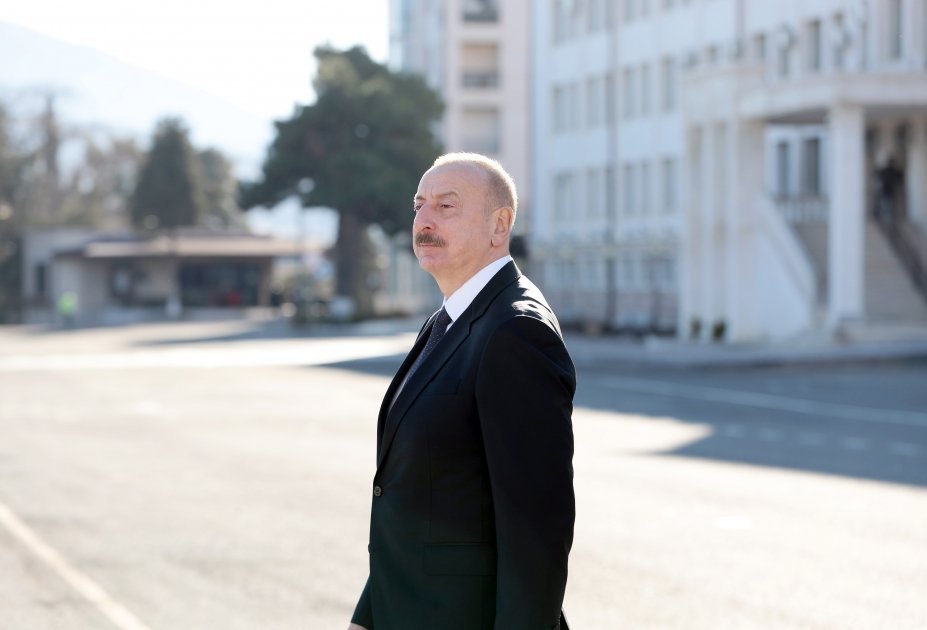BAKU, Azerbaijan, March 28. In every contemporary conflict, war, and confrontation, there's a crucial aspect that sets them apart from conflicts of the past: hybridity. These days, battles aren't just fought on the ground; they extend into the information sphere. Conflicts are sparked, stoked, and subdued across a multitude of fronts. Here in Azerbaijan, we're well familiar with this reality: three decades of Armenian occupation have taught our country to combat hybrid threats in all their forms.
However, the hybrid war waged against Azerbaijan had its own distinctiveness. After the 44-day conflict in 2020, Azerbaijan wasn't facing attacks solely from Yerevan anymore. It was the West that initiated a full-blown hybrid warfare against Baku. Just think about what was unfolding just a year ago.
Summer of 2023. In the Western media, there's a daily onslaught - and this is not an exaggeration - of anti-Azerbaijani articles, interviews, and so-called "expert opinions". Our supposed old "friends" are especially zealous; The Washington Post and the French Le Figaro seem more focused on attacking Azerbaijan than on events in their own countries. The barrage of information warfare against our country reached unprecedented levels: the most ludicrous falsehoods about Azerbaijan were peddled, President Ilham Aliyev faced relentless criticism, and absurd "investigations" and "reports" were churned out. Western NGOs and "human rights activists" jumped into the fray. And then there's the pièce de résistance: Luis Ocampo, former prosecutor of the International Criminal Court, churning out report after report - one day it's about the "blockade" of the Lachin corridor, the next he's warning of yet another "genocide". He seemed to be pulling out all the stops, likely not without some ulterior motive.
The peak of this hybrid assault on Azerbaijan hit in the summer of 2023 - and it wasn't a coincidence. The West understood the situation perfectly well. They knew Azerbaijan wouldn't sit idly by while separatist remnants continued their charade of "statehood" on our soil, backed by foreign lobbyists, all the while exploiting our natural resources and gearing up for armed provocations. The Western attacks aimed to pressure Baku into preventing the central government from reclaiming sovereignty over all of Azerbaijan's territory. It was a full-fledged hybrid war - and by summer 2023, they weren't even bothering to hide it.
The Western anti-Azerbaijani forces sought to mold Azerbaijan into a nation they could manipulate. They saw the Karabakh conflict as a lever to press on Baku from all sides. That's why, by 2023, Western circles increasingly floated ideas about deploying missions in Karabakh. That's why the West, by any means necessary, sought to ensure that the EU mission, currently patrolling the hypothetical Armenian-Azerbaijani border, wouldn't just be stationed in Armenia but also within our country's borders. They needed to maintain their grip of pressure and influence over Baku.
Most likely, the original plan was to hinder Azerbaijan from reclaiming its territorial integrity - Armenians were meant to persist in their "independence" charade on our soil, handing the West the cards they needed. However, it didn't pan out that way - by 2020, those plans hit a dead end. Azerbaijan, both in word and deed, made it clear it wouldn't tolerate the occupation of its land any longer. Plans had to be adjusted; talks started about various missions, observers, and trust-building measures between Armenians and Azerbaijanis in Karabakh. Despite the noble façade, the intentions remained unchanged - to thwart Azerbaijan's sovereignty restoration efforts, keep pressure points intact, and continue leveraging this situation to their advantage. This was particularly crucial amid the escalating standoff between the West and Russia.
All of that strategy, all those plans, information campaigns, manipulations, and the efforts of lobbying groups worldwide - it all crumbled. President Ilham Aliyev's unwavering principles, consistency, and political determination tore down everything plotted against our country. Against provocations, falsehoods, and assaults, stood the unity of millions of Azerbaijani citizens rallying around their leader. President Ilham Aliyev crafted a robust and resilient state, immune to any attacks: a thriving economy, a skilled military, and successful foreign relations, alongside internal stability and solidarity within Azerbaijani society, formed the bedrock upon which the strategy for fully restoring Azerbaijan's territorial integrity was built. It was a monumental, painstaking effort spanning years, executed flawlessly from start to finish.
As a result, thanks to President Ilham Aliyev, Azerbaijan has achieved a historic milestone: sovereignty has been fully restored across the territory, and Baku now pursues a truly independent policy, refusing to bow to external dictates or conditions. Azerbaijan has become a force to be reckoned with, whether certain parties like it or not. Interestingly, Armenia, in contrast, has gained nothing but a harsh reality check: they'll be dealing with the severe repercussions of decades of aggression, occupation, and strained regional relations for years to come.
The restoration of Azerbaijan's sovereignty in September 2023 wasn't just the last blow to Armenian separatism; it also marked the final, decisive battle in the hybrid war waged against our nation. That's why today, those same NGOs, experts, and human rights activists with their reports seem to have vanished without a trace - gone silent, disappeared. The onslaught of attacks that plagued us in the summer of 2023 has come to an end.
The West has utterly failed in the hybrid war it instigated.







